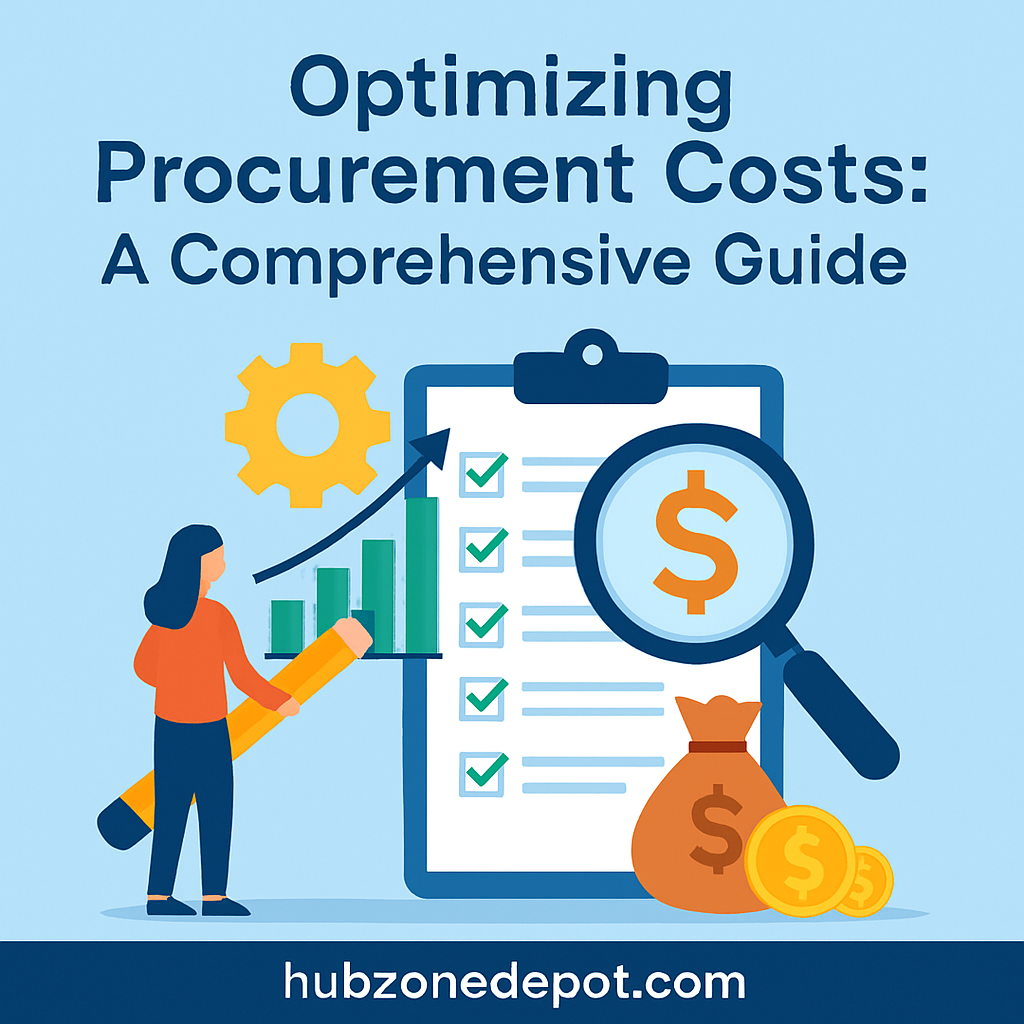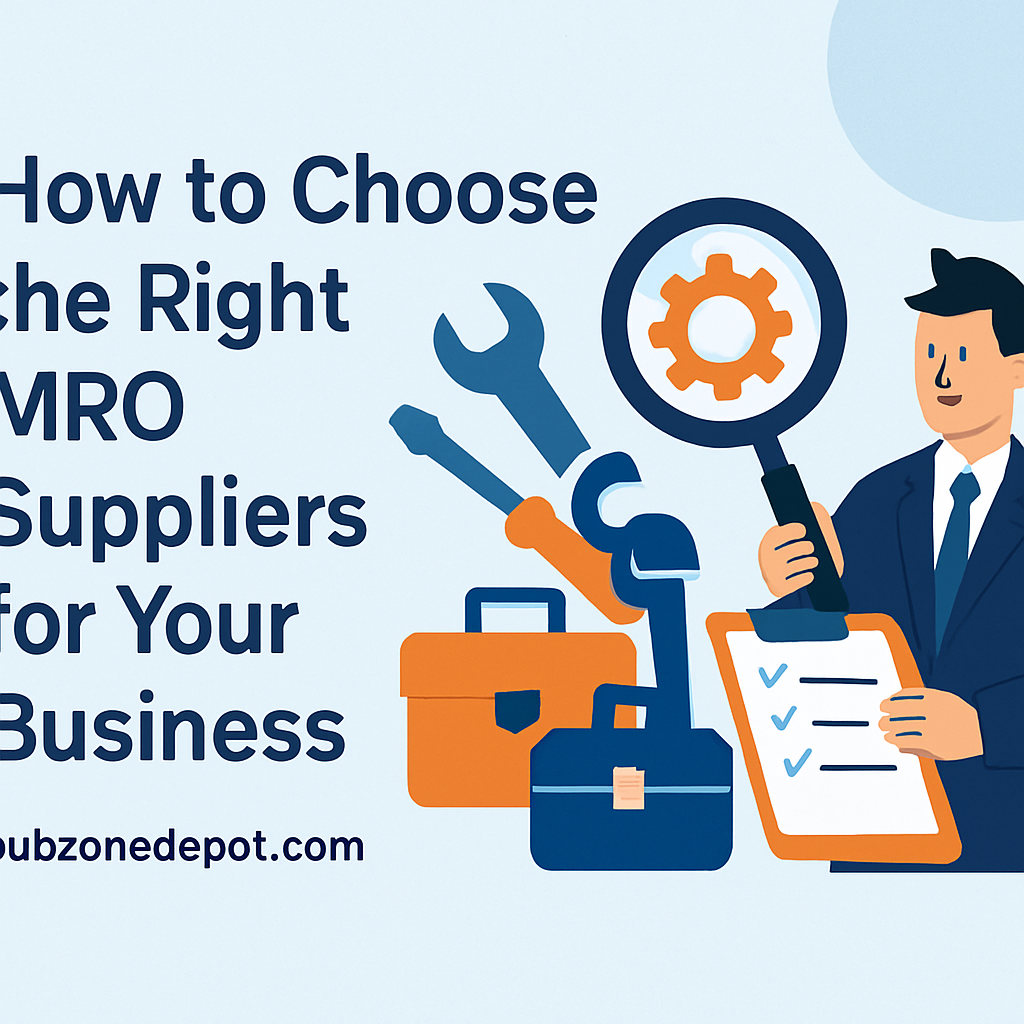Introduction
Category-specific GPO contracts are agreements that enable organizations to pool their purchasing power through Group Purchasing Organizations (GPOs). These contracts focus on specific categories of products or services, allowing members to secure competitive pricing and favorable terms.
Key takeaways include:
- Leverage collective buying power: Organizations can achieve significant cost savings by leveraging drastic cost reduction through collective spend.
- Access high-quality goods and services: Benefit from competitive rates without sacrificing quality.
In this article, you will learn about the functionality of GPOs, the financial advantages of category-specific contracts, and best practices for successful implementation. Insights into diverse supplier partnerships and a case study highlighting Hubzone Depot LLC’s experience will also be shared.
Moreover, we will discuss how your organization can optimize procurement strategies through category-specific GPO contracts. This includes understanding the difference between strategic sourcing and category management, as well as exploring procurement in crisis scenarios.
Additionally, we will delve into how certain products like essential PPE for airborne precautions in healthcare can be sourced effectively through GPO contracts. Finally, we’ll touch upon the importance of providing break room supplies to boost employee morale, another area where category-specific GPO contracts can be beneficial.
Understanding Group Purchasing Organizations (GPOs)
Group Purchasing Organizations (GPOs) play a crucial role in the procurement landscape by facilitating collective purchasing for organizations. They are designed to pool the buying power of multiple entities, allowing members to negotiate better pricing and terms with suppliers.
Key Functions of GPOs
- Collective Buying Power: GPOs aggregate demand from their members, increasing leverage when negotiating contracts with suppliers. This results in lower prices and improved terms.
- Category-Specific Contracts: These contracts focus on specific categories of goods or services, ensuring that organizations can access tailored options that meet their unique needs.
Benefits of Joining a GPO
Organizations can experience numerous advantages by becoming part of a GPO:
- Cost Savings: Members often realize savings of 10-15% or more on their purchases due to negotiated rates. This reduction in expenditure directly impacts the bottom line.
- Streamlined Procurement Processes: The use of standardized contracts simplifies the procurement process. Organizations save time and resources when sourcing products and services.
- Access to Quality Suppliers: GPOs vet suppliers, providing members with access to high-quality vendors who meet industry standards. This aspect ties closely into supplier relationship management, which is essential for maintaining these quality supplier connections.
In summary, GPOs serve as strategic partners in enhancing an organization’s procurement strategy. By leveraging collective buying power through category-specific contracts, they enable organizations to achieve substantial cost savings while simplifying the purchasing process.
Moreover, the benefits of joining a GPO extend beyond just cost savings and streamlined processes. For instance, they often lead to compliance-driven sourcing, which not only enhances an organization’s reputation but also reduces risks and aligns with ethical standards.
Additionally, with the right tools like best procurement software, organizations can further revolutionize their procurement strategy.
For those looking to kickstart their career in supply chain management, joining a GPO could also provide valuable insights and experience relevant to entry-level procurement jobs.
Advantages of Category-Specific GPO Contracts
Category-specific GPO contracts offer significant financial benefits for organizations. Here are some key aspects:
1. Cost Savings
Organizations can expect potential savings ranging between 10-15% through these contracts. By leveraging the collective buying power of a GPO, members gain access to negotiated pricing that is often more favorable than what they could secure independently. This art of frugal living can be beneficial in maximizing these savings.
2. Streamlined Procurement Processes
These contracts simplify purchasing procedures, reducing the time and resources spent on procurement activities. With predefined agreements in place, organizations benefit from quicker decision-making and order fulfillment. It’s a crucial aspect of mastering procurement through continuous learning and strategic thinking, as demonstrated by Frank Corris’s transformative journey.
3. Reduced Administrative Overhead
The complexities of managing multiple suppliers are minimized. Category-specific contracts consolidate vendors into a single procurement strategy, enabling organizations to focus on their core operations while enjoying the advantages of bulk buying. This streamlined process not only optimizes the procurement experience but also prepares professionals for a promising career path, as seen in the 2025 procurement engineer salary trends which reflect the growing demand for skilled procurement professionals.
Embracing category-specific GPO contracts not only enhances cost efficiency but also fosters a more agile and responsive purchasing environment, crucial for organizations aiming to remain competitive in today’s market landscape. Moreover, such an approach can also align with broader organizational goals like promoting diversity, equity, and inclusion within the workplace.
Accessing Competitive Pricing Through Category-Specific Contracts
Category-specific GPO contracts are designed to facilitate access to competitive rates for high-quality products. The negotiation process in these contracts is strategic, allowing organizations to benefit from bulk purchasing power without the burden of long-term commitments or purchase minimums.
Key aspects of how pricing is negotiated include:
- Group Purchasing Power: By pooling demand from multiple organizations, GPOs negotiate better pricing based on volume. This collective leverage translates into reduced costs for individual members.
- Market Analysis: GPOs conduct thorough market research to understand pricing trends and benchmarks. This ensures that contracted prices remain competitive compared to market rates.
- Flexible Terms: Many category-specific GPO contracts offer flexibility, enabling organizations to order as needed without committing to a minimum purchase quantity. This adaptability supports better cash flow management.
- Regular Reviews: GPOs often revisit contract terms to ensure ongoing competitiveness. This continuous evaluation helps maintain access to high-quality products at favorable prices.
Organizations leveraging category-specific GPO contracts can enjoy significant financial advantages while ensuring they procure quality goods efficiently. To maximize these benefits, it’s crucial to focus on maximizing supplier performance, which ensures quality and reliability in the products procured. Additionally, staying informed about top trends in supplier innovation can further enhance the effectiveness of these contracts and lead to even greater cost savings and efficiency.
Implementing Category-Specific GPO Contracts Successfully
Implementing category-specific GPO contracts requires a structured approach to ensure efficiency and minimize disruptions. Consider the following actionable steps:
-
Assessment of Needs: Identify the specific categories of goods and services required by your organization. This clarity helps in selecting the right GPO that aligns with your procurement goals.
-
Selecting the Right GPO: Research and evaluate different GPOs based on their offerings, pricing structures, and supplier networks. Choose one that best fits your organization’s needs.
-
Engagement with Stakeholders: Involve key personnel early in the process. Effective communication with stakeholders fosters buy-in and ensures everyone understands the benefits of using GPO contracts.
-
Training and Education: Provide training sessions for staff involved in purchasing decisions. Familiarity with the new processes will facilitate smoother transitions and reduce resistance.
-
Monitoring Progress: Establish metrics to monitor how well the implementation is going. Regular check-ins can help identify any issues early on.
Expert guidance plays a crucial role in this transition phase. Collaborating with experienced professionals can address potential challenges effectively. They provide insights into best practices, ensuring seamless implementation while optimizing procurement operations for your organization.
Leveraging Diverse Suppliers and Social Responsibility Goals Through GPO Partnerships
Group Purchasing Organizations (GPOs) play a crucial role in promoting certified diverse suppliers. This support is essential for organizations aiming to enhance their social responsibility initiatives. By incorporating diverse suppliers into their procurement strategies, organizations can achieve significant social impact while benefiting from competitive pricing.
Key Contributions of GPOs:
- Access to Diverse Suppliers: GPOs provide access to a network of certified diverse suppliers, including women-owned, minority-owned, and veteran-owned businesses. This expansion allows organizations to diversify their supply chains.
- Alignment with Social Responsibility Goals: Partnering with diverse suppliers aligns procurement practices with broader social responsibility objectives. This alignment not only fosters community development but also enhances an organization’s reputation.
- Increased Visibility for Diverse Businesses: GPOs often highlight diverse suppliers within their contracting processes, ensuring they receive equal opportunities to compete for contracts.
Impact on Procurement Strategies:
By leveraging GPO partnerships, organizations can:
- Support Economic Growth: Investing in diverse suppliers stimulates local economies and promotes job creation.
- Enhance Brand Loyalty: Customers increasingly prefer brands that demonstrate commitment to diversity and inclusion.
Engaging with certified diverse suppliers through GPOs strengthens both the supply chain and the organization’s commitment to social responsibility. However, there are several misconceptions about GPOs that can hinder organizations from fully realizing these benefits.
Case Study: Hubzone Depot LLC’s Success with Category-Specific GPO Contracts
Hubzone Depot LLC serves as an exemplary model of how a HUBZone small business and Women’s Business Enterprise (WBE) can effectively utilize category-specific GPO contracts to meet the needs of public sector clients. Founded by Jessica S. Presco, this Burlington, NJ-based company focuses on supplying essential goods and services while championing diversity in procurement.
Key highlights of Hubzone Depot’s approach:
- Targeted Clientele: The company specifically caters to public sector clients, leveraging public funds for procurement.
- GPO Collaboration: By partnering with Group Purchasing Organizations, Hubzone Depot gains access to competitive pricing and exclusive discounts, enhancing its ability to serve government entities.
- Cost Efficiency: The strategic use of category-specific GPO contracts allows for significant savings—up to 10-15%—on various supplies and services, translating into substantial financial benefits for clients.
- Community Commitment: Employment of individuals residing in HUBZones reinforces its commitment to social responsibility while ensuring compliance with certification requirements.
With a focus on transparency and integrity, Hubzone Depot exemplifies how small businesses can harness category-specific GPO contracts to thrive in a competitive landscape. Their success is not just about securing contracts but also about succeeding with limited resources, optimizing processes and leveraging networks. Furthermore, their strategic tail spend management practices have significantly improved cost efficiency. For businesses operating with minimal personnel, like those managing a one-person procurement function, Hubzone Depot’s insights can provide valuable guidance on supplier management and cost optimization.
Best Practices for Maximizing Value from Category-Specific GPO Contracts
To fully leverage category-specific GPO contracts, organizations should adopt several best practices that facilitate effective engagement with multiple suppliers. Consider the following recommendations:
- Conduct Regular Assessments: Periodically evaluate supplier performance and contract terms. This ensures you are receiving optimal pricing and service quality.
- Engage Stakeholders: Involve key team members in the procurement process. Their insights can help identify needs and opportunities for cost savings.
- Utilize Data Analytics: Leverage data analytics to monitor purchasing patterns. This can reveal trends that inform better buying decisions and optimize supplier relationships.
- Negotiate Terms: Don’t hesitate to negotiate terms with suppliers. Even within GPO contracts, there may be flexibility that allows for tailored agreements based on specific organizational needs.
- Educate Your Team: Provide training on GPO processes and the benefits of indirect purchasing strategies. A well-informed team can make more strategic purchasing decisions.
By implementing these indirect purchasing tips, organizations can enhance their procurement strategies, ensuring they derive maximum value from their GPO engagements while maintaining high standards of service delivery across their supply chain.
Conclusion
Category-specific GPO contracts offer several benefits for organizations looking to improve their procurement strategies. The main advantages include:
- Cost Savings: Use the power of group buying to achieve significant reductions in expenses, which is a key benefit of private sector group purchasing.
- Streamlined Processes: Enjoy simpler procurement operations, reducing administrative burdens. This is where procurement optimization comes into play.
- Access to Quality: Get competitive pricing on high-quality goods and services.
As the procurement landscape changes, GPOs will play an increasingly important role, reflecting future trends that prioritize collaboration and efficiency. By working with category-specific GPO contracts, organizations can expect not only immediate savings but also long-term strategic benefits.
To further enhance your organization’s procurement strategies, consider exploring effective sourcing strategies for hiring top talent. Additionally, understanding the differences between purchasing groups and group purchasing organizations can provide valuable insights. Embrace the potential of category-specific GPO contracts and unlock value for your organization.



